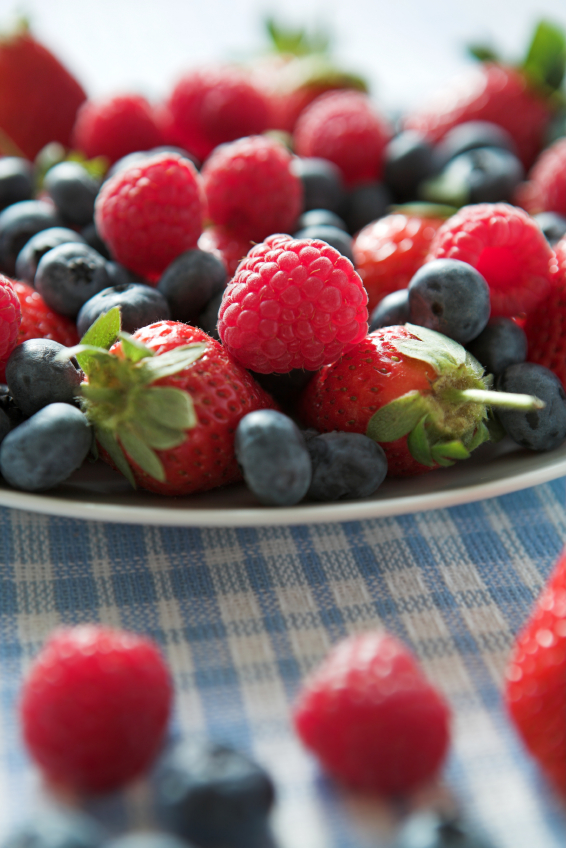The blueberries, strawberries and raspberries in season and available at farmers’ markets across the Tri-State are a nutritional bonanza.
Rinse and enjoy by the handful. Or add to salads and desserts as sweet, healthy treats. Next time you bite into a berry, remember all of the important health benefits.
- Blueberries are packed with phytonutrients that may prevent heart disease, diabetes and some cancers, according to the Mayo Clinic.
- Strawberries are a good source of vitamin C and potassium.
- Raspberries, just a single cup, provide 8 grams of fiber. That’s a third of the daily recommendation for women and a fifth of the recommendation for men.
Fresh or frozen berries are best. Processing causes a loss of nutrients.
St. Elizabeth Healthcare’s Clinical Nutrition Manager Sheri Kanarek, RD, LD, suggested you wash your hands with soap and water before washing the fruit to avoid introducing contaminants. She advised:
- Rinse for one to two minutes.
- Do NOT use soaps or detergents.
- Dry on a clean paper towel.
Blueberries are praised by the U.S. Department of Agriculture as an excellent source of vitamin C and are high in manganese, which helps the body process cholesterol. They provide fiber which may reduce the risk of heart disease. July may be Blueberry Month but “Here at the USDA, every month is Blueberry Month,” the department’s website asserts. Research continues into how the blueberry promotes cardiovascular and brain health, insulin response and cancer prevention.
Choose strawberries that are bright red, shiny and firm. They will store well in the refrigerator for one to three days and should not be washed until you are ready to serve them.
Raspberries contain antioxidants including vitamin C that promote healthy hearts and are shown to stave off cancer and age-related decline. Research has shown raspberries may help as an anti-inflammatory in cases of arthritis and gout.
In the next few weeks, we look forward to locally-grown plums and peaches!

